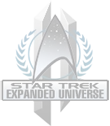| GOVERNMENT | |
| United Kingdom | |
|---|---|

| |
| The Union Jack | |
| Founded: | 1707 |
| Form: | Constitutional Monarchy |
| Location: | Earth |
| Affiliation: | European Union (formerly) United Nations (formerly) United Earth |
| Capital: | London, England |
| Head of State: | King/Queen |
| Head of Government: | Prime Minister |
| Major Species: | Humans |
| Intelligence Service: | MI5, MI6 |
| Religion: | Christianity (formerly) |
| Language: | English |
| Currency: | Pound Sterling |
- For mirror universe counterpart, see British Empire (mirror).
- "We shall go on to the end. We shall fight in France, we shall fight on the seas and oceans, we shall fight with growing confidence and growing strength in the air, we shall defend our island, whatever the cost may be. We shall fight on the beaches, we shall fight on the landing grounds, we shall fight in the fields and in the streets, we shall fight in the hills; we shall never surrender."
- — Winston Churchill
The United Kingdom of Great Britain was a nation-state located in the British Isles, northwest of continental Europe. Citizens were known as Britons or British. It was a constitutional Monarchy, with either a King or Queen serving as head of state while most of the power of government rests with a Prime Minister or Parliament.
History[]
Formation[]
The United Kingdom of Great Britain was formed in 1707 by the Act of union between the Kingdoms of Scotland and England, encompassed the whole of the island of Great Britain. In 1801 it expanded to include Ireland, being renamed to the United Kingdom of Great Britain and Ireland.
Expansion[]
Throughout the 1800s, the United Kingdom was the dominant power on Earth, using its Royal Navy to create the largest empire in human history. At its height the British Empire covered a quarter of Earth landmass and held sway over 458 million people, giving rise to the saying that "the sun never sets on the British Empire". The Empire lasted until the end of the Second World War when the UK began to grant many of the subject countries and colonies independence.
Breakdown of the Union[]
Ireland remained part of the United Kingdom until 1922, when twenty-six southern Irish counties seceded, forming an Irish free state. The remaining six Irish counties formed Northern Ireland and the UK was renamed the United Kingdom of Great Britain and Northern Ireland in 1927. This lasted until 2025 when Northern Ireland reunified with the rest of Ireland and the UK reverted to the United Kingdom of Great Britain. (TNG: "The High Ground")
- In at least one continuity, Scotland seceded from the U.K. sometime before 2053. (Missing Link)
Replacement and Restoration[]
- See main article: Optimal Republic of Great Britain
In 2047 the British monarchy was over thrown by the Optimum Movement and the nation renamed the Optimal Republic of Great Britain. The Optimum were in power for over two decades until they were overthrown in 2079, following the death of their leader Adrik Thorsen, and the United Kingdom of Great Britain restored. (TOS/TNG novel: Federation; Star Trek: The Adventures of Argus: "Nuclear Time")
Part of a Larger Union[]
The UK continued to exist as a nation state well into the 22nd century, joining the United Earth government sometime between its formation in 2130 and 2150, when the last of Earth's old polities became part of the world state. However, even following this, the UK continued to operate a Royal Navy into the 2150s. (TNG: "Attached", ENT: "Silent Enemy")
Culture[]
Many human cultural artefacts, including the English language, originated in the United Kingdom and were widely disseminated during the existence of the British Empire when access to relative high technology (for the time) allowed the UK to impose its norms on other countries.
Notable citizens[]
- Montgomery Scott
- Stephen Fox (Star Trek: Valkyrie)
- Jo Harris (Starship Exeter)
- Thomas Patel (Star Trek: The Adventures of Argus)
External links[]
- United Kingdom article at Memory Alpha, the canon Star Trek wiki.
- United Kingdom article at Memory Beta, the non-canon Star Trek wiki.
- United Kingdom article at Wikipedia, the free encyclopedia.
